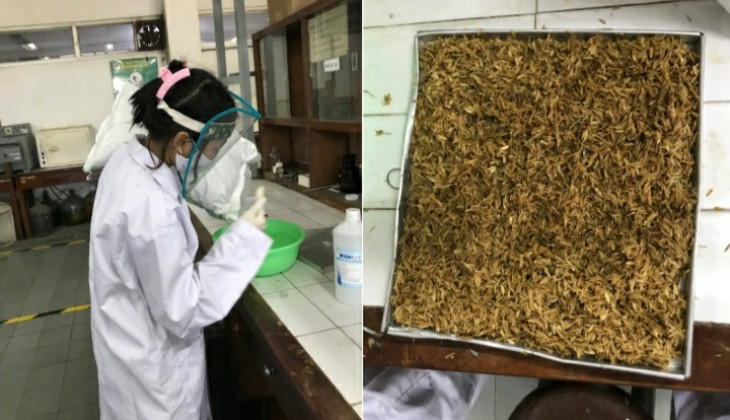UGM students, Tria Oktaria Rahmah (Dentistry), Zakarias Sukma (Chemical Engineering), Dhea Umi Amalia (Chemistry) and Yohana Andina (Dentistry), use rice hulls to develop the Mi-R21 detection genosensor, which can potentially diagnose oral cancer. These four young students developed Genosensors from rice hulls through the 2021 Ministry of Education and Culture Research and Technology Student Creativity Program (PKM).
Yohana said that the idea of this project started from their concern regarding the high number of oral cancer cases. This type of cancer causes a high mortality rate due to the absence of symptoms in the early stages. Patients only feel pain after the illness becomes severe and difficult to control.
“For this reason, we are trying to create a genosensor from rice hulls that can detect oral cancer,” she explained on Friday (17/9).
Yohana said that Mi-RNA21 had a fairly high level in patients with early oral cancer. Therefore, there should be a way to distinguish people who have oral cancer from those who do not, even though they are asymptomatic. With early detection, it is hoped that treatment can be done immediately to reduce the risk of death.
“So far, screening is rather difficult, only relying on a visual examination from a dentist. In addition, for better technology, it has limitations because the equipment is large, it is difficult for remote communities and also expensive,” she explained.
The genosensor that has successfully detected the Mi-R21 consists of a glucometer and a glucostrip. It is equipped with Propylamine Mesoporous Silica Nanoparticle measuring 311 nanometers produced from rice husks.
“From the test that we have done, it showed that we can detect Mi-RNA 21 with the help of a glucometer and glucostrip in vitro,” she said.
Dhea added that their research still needed further development. In the future, clinical research with direct samples from patients with oral cancer is suggested. In addition, it is also necessary to conduct testing on a larger scale to produce genosensors with high reliability and validity.



